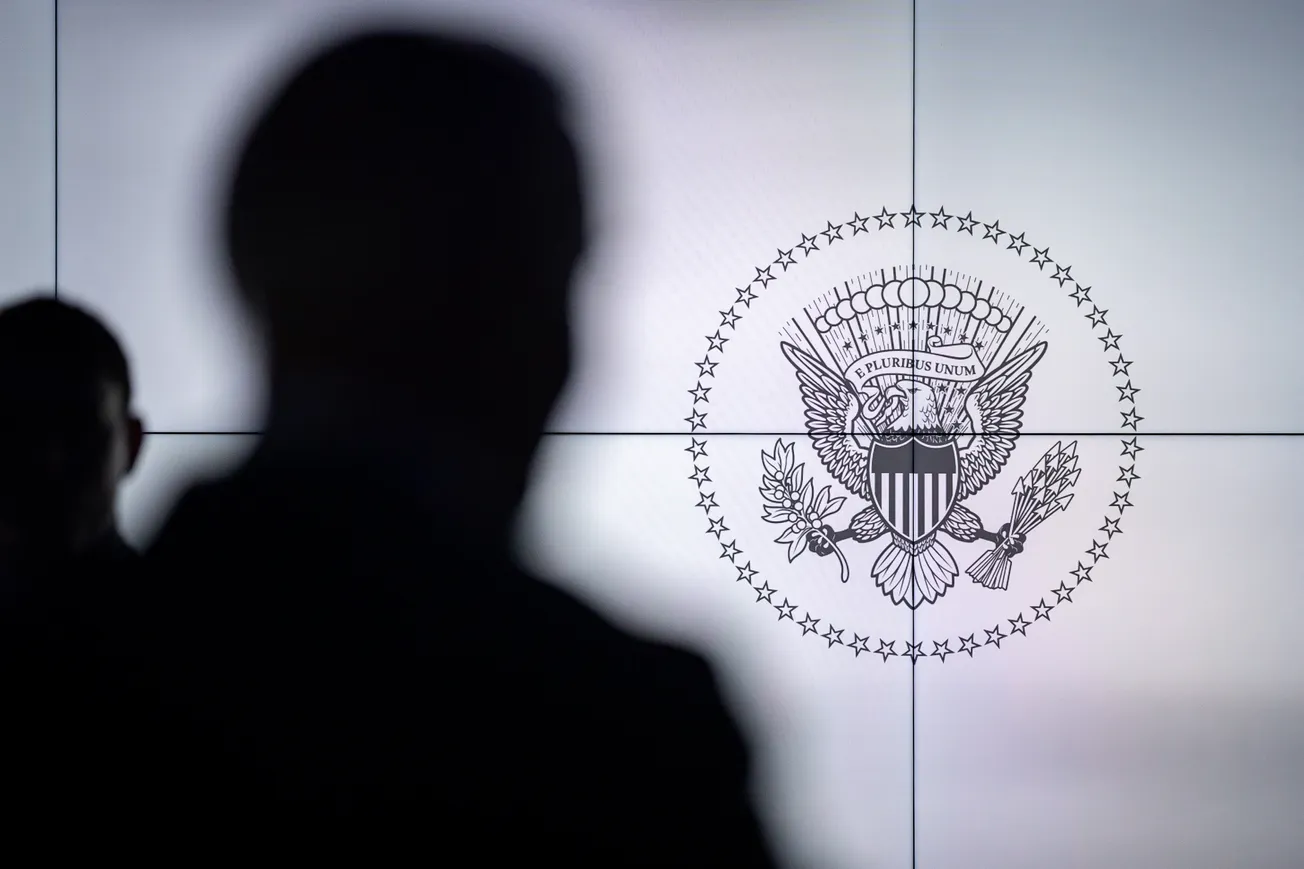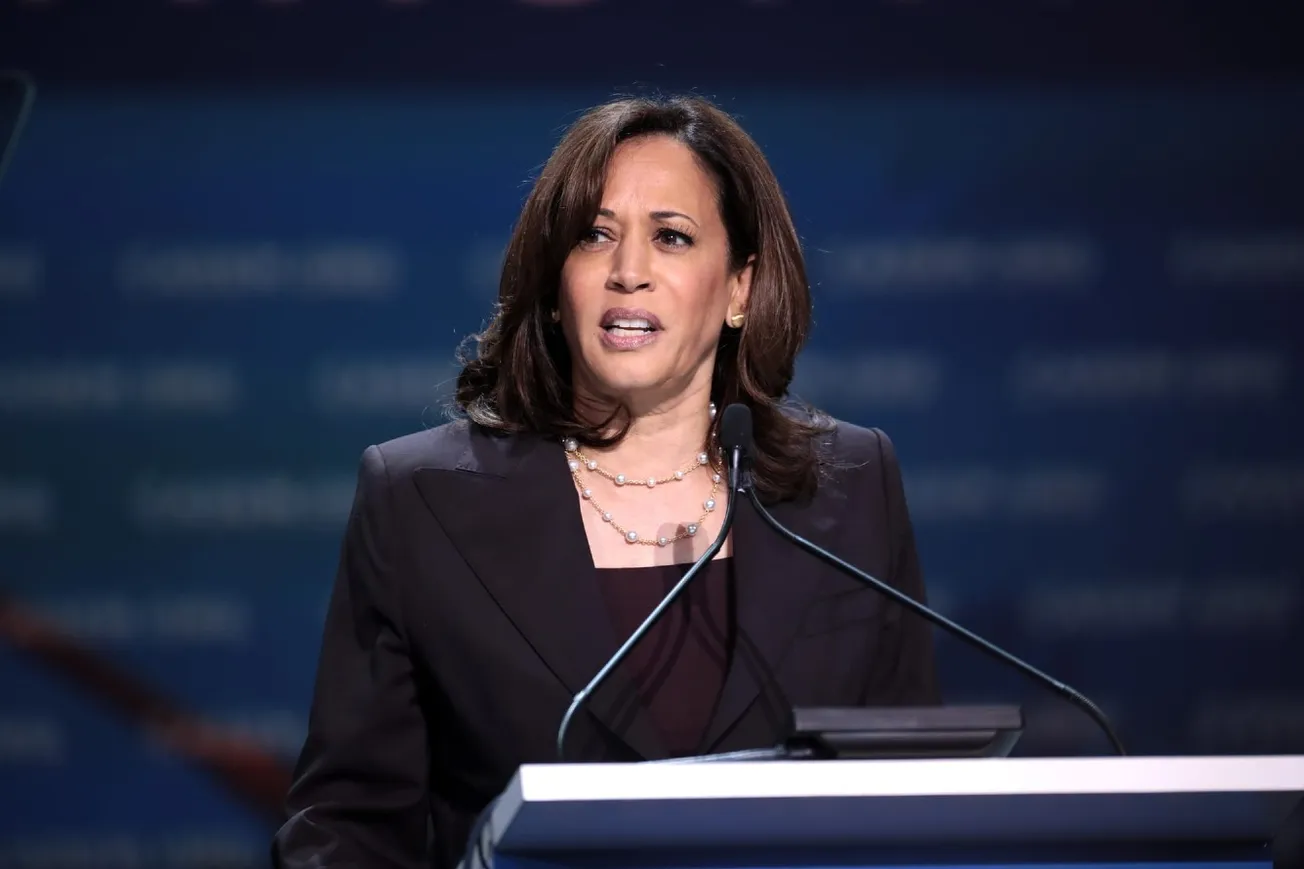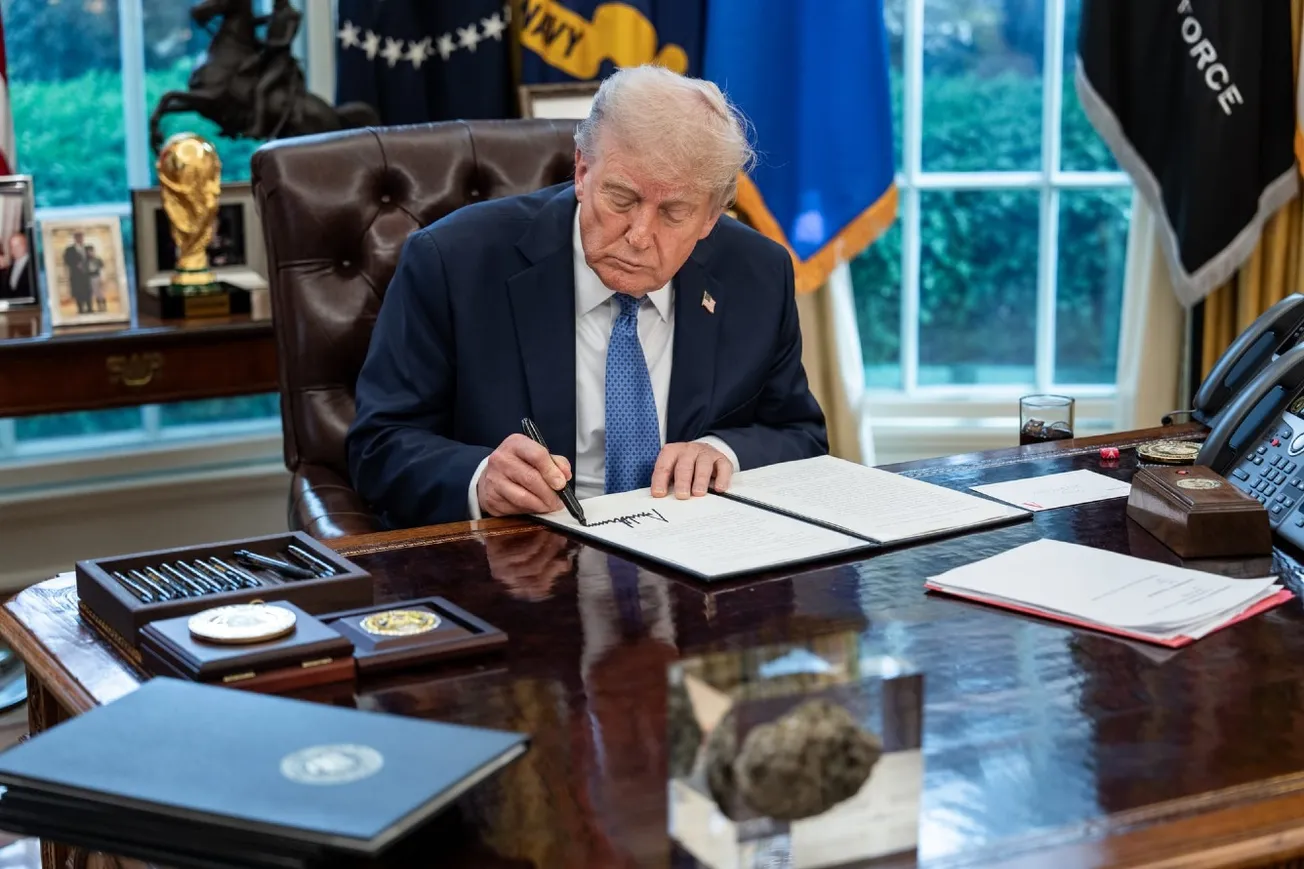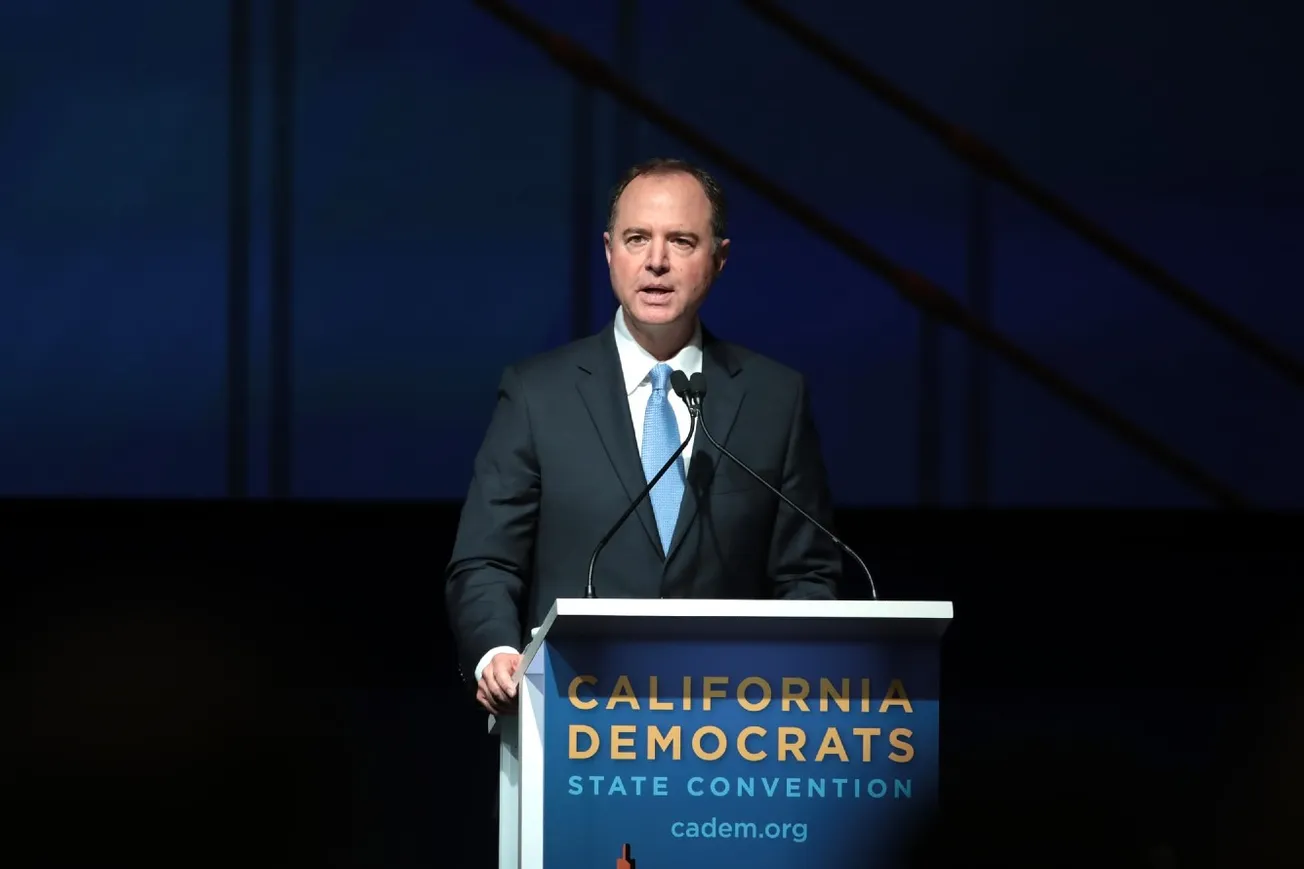President Joe Biden has largely receded into the background at the White House after giving up his campaign for a second term following intense pressure from top Democrats. Despite occupying the most powerful job on Earth, Biden seems to have been relegated to the sidelines. Do voters want Biden now to formally step aside? The I&I/TIPP Poll has answers.
To find out what Americans thought, the national online I&I/TIPP Poll this month asked 1,488 adults this question: “Which of the following do you believe is in the best interest of the country?” The poll, taken from July 31-Aug. 2, has a margin of error of +/-2.7 percentage points.
Respondents were given four possible responses: “Biden should finish his term,” “Biden should step down and hand over the presidency to Harris,” “Biden should be removed from office using the 25th Amendment,” and “not sure.”
The answer? A small plurality of 48% said they wanted Biden to “finish his term,” while 41% said they wanted him either to “step down” (21%) or “be removed” through the 25th Amendment (20%). Another 12% weren’t sure.
While differences emerge when you look at party affiliation, what’s perhaps surprising to some is that no one really seems enthused about removing Biden from office, at least for now.
Democrats, at 60%, are most in favor of Biden staying as president to finish his term, with just 34% saying he should go. But a slender plurality of independents (44% stay, 38% go) agree and a significant minority of Republicans (38% stay, 40% go) also say Biden should remain.
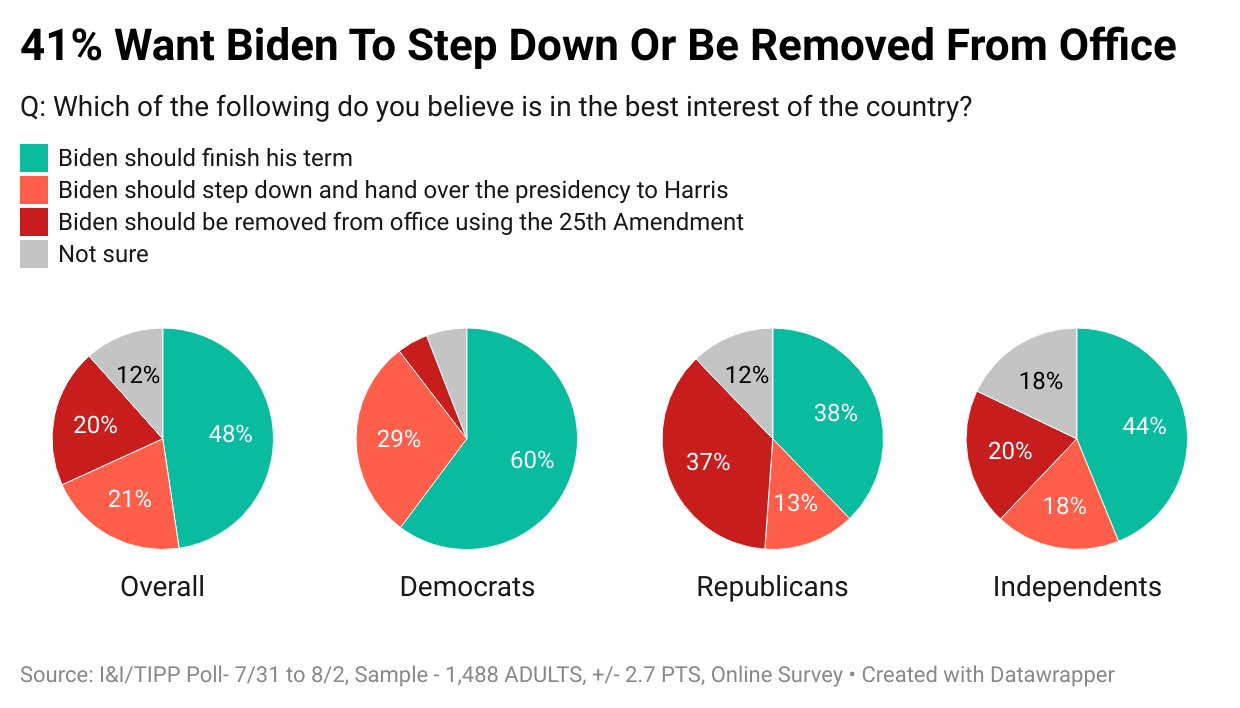
Some other demographic patterns emerge. There’s a pronounced young vs. old split, with the younger cohorts (18-24 years, 39% stay, 52% go; 25-44 years old, 41% stay, 46% go) solidly behind Biden stepping down. But those aged 45-64 (51% stay, 37% go) and those 65 and over (56% stay, 33% go) strongly support Biden holding on to his office, despite signs of age-related mental issues.
One other intriguing split: White vs. minority voters. A plurality of white voters (49% stay, 40% go) want Biden to remain in office, while 43% of black/Hispanic voters want him to stay, and 35% want him to depart.
In short, should Biden decide to remain in office, which seems to be the case, it’s unlikely that there will be a popular wave that will push him out.
That wasn’t the only question about Biden’s final months’ tenure in office. Given what even Democrats now agree are Biden’s mental difficulties, particularly in evidence during the disastrous July 21 debate with former President Donald Trump, some have wondered: Is he up to performing his duties when it comes to national security?
Specifically, I&I/TIPP asked: “How concerned are you about President Biden’s ability to handle national security issues effectively over the next six months before his term ends?” The possible answers included “Very concerned,” “Somewhat concerned,” “Not very concerned,” “Not at all concerned,” and “Not sure.”
On this, the voting public appears worried. Overall, 62% said they were either very concerned (39%) or somewhat concerned (23%). Meanwhile, just 32% described themselves as either not very concerned (16%) or not at all concerned (16%).
That concern expressed in numbers showed solid consensus, nearly across the board. Among the 36 separate demographic categories routinely polled, this month only two — Democrats (42%) and self-described Liberals (37%) — came in below 50%.
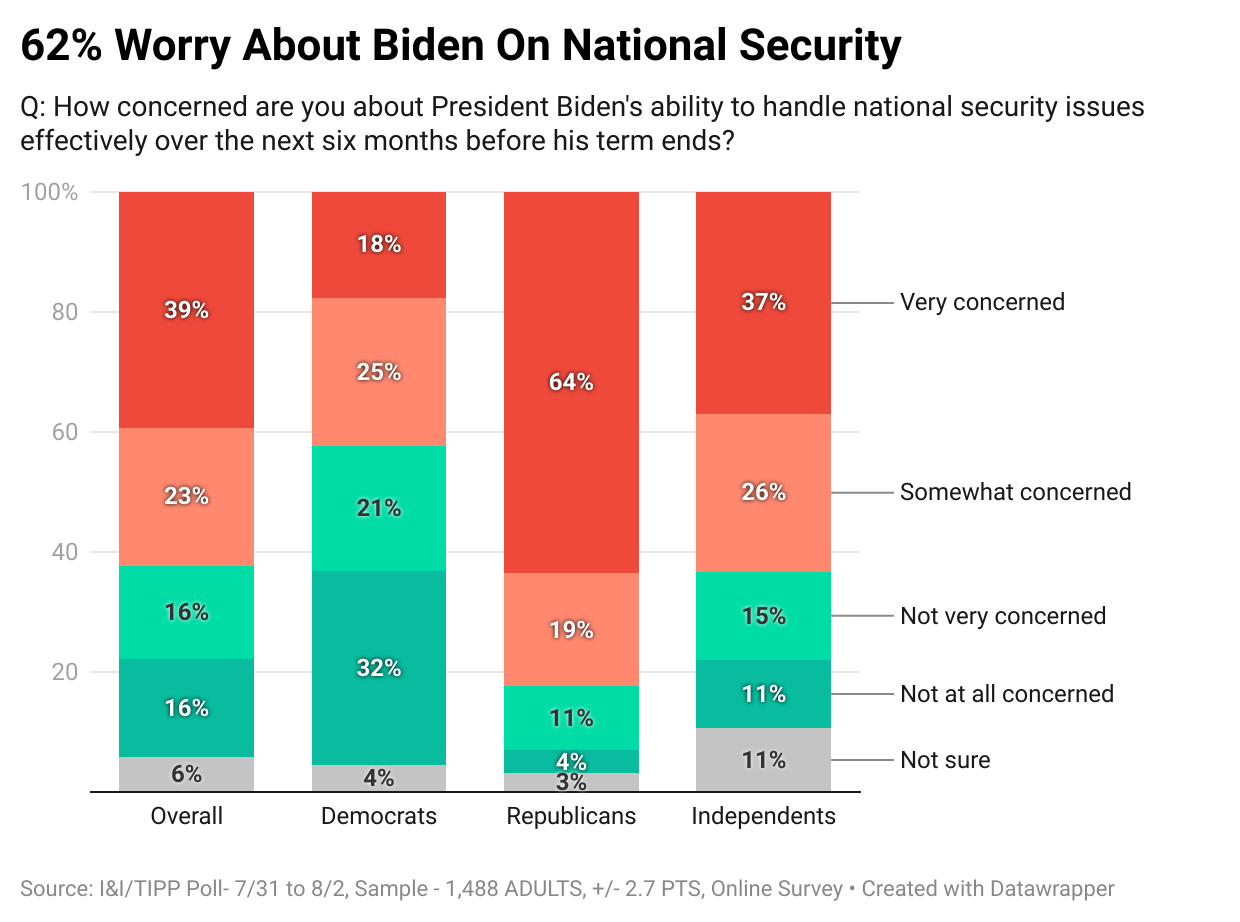
How can it be that many of the same people who say they want Biden to remain in office would at the same time record such high levels of concern over an increased national security threat if Biden doesn’t leave?
For one, it’s not really clear that Biden is exercising operational control over the White House these days, with large tracts of his official schedule taken up with personal time and trips to his vacation home in Rehoboth Beach and burnishing his “legacy.”
The fact is, he seems to be slipping mentally, which even the New York Times now bluntly admits, reporting that “Biden’s lapses are said to be increasingly common and worrisome.”
That would seem to suggest a dangerous power vacuum at the top, with the White House effectively being run by aides, not the president himself.
Unfortunately the world is full bad neighborhoods run by even worse “leaders,” from Xi Jinping in China and Kim Jong-un in North Korea, to Vladimir Putin in Russia and the parade of extremist, terrorism-supporting mullahs who have led Iran since its 1979 revolution.
A startling recent report by the Commission on the National Defense Strategy issued this stark warning:
The threats the United States faces are the most serious and most challenging the nation has encountered since 1945 and include the potential for near-term major war. The United States last fought a global conflict during World War II, which ended nearly 80 years ago. The nation was last prepared for such a fight during the Cold War, which ended 35 years ago. It is not prepared today.”
That lack of preparation or even concern about U.S. national security seems to begin at the very top of our government. It includes politicized spy agencies, the new “woke” military, and foreign policy officials who openly back terrorist groups (Hamas, for instance) while vilifying our best allies (Israel).
At the top? Right now, a leadership vacuum.
“Biden has disappeared from view, Harris is campaigning full-time, and won’t meet with the press,” former White House national security adviser K.T. McFarland told Fox News Digital.
“This sends a signal to the world that there is no one in charge in the White House,” she said. “Our allies wonder whether they can trust us. Our adversaries see this as a wide open window of opportunity, when they can exploit us without risk of consequences.”
In short, as the cliche goes, we live in dangerous times. In the waning half-year of Biden’s term, it looks as if America will be living in a state of heightened concern over foreign powers moving against our fundamental interests. That includes the possibility of another major domestic act of terror, like 9/11. Will Americans be thinking about this when they vote this November?
Terry Jones is an editor of Issues & Insights. His four decades of journalism experience include serving as national issues editor, economics editor, and editorial page editor for Investor’s Business Daily.

